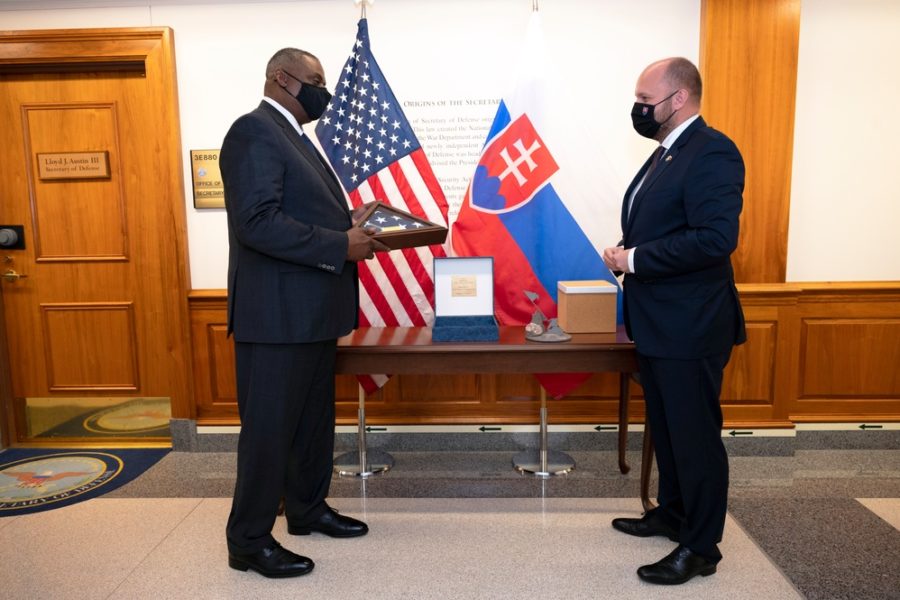Defense Secretary Lloyd J. Austin III is set to visit Belgium and Slovakia the week of March 13, his first visit to Europe since Russia launched its invasion of Ukraine, the Pentagon announced March 11.
In Brussels, Belgium, Austin will take part in a meeting with NATO defense ministers as the alliance continues to track the war unfolding in Eastern Europe. Millions of Ukrainians have fled the country, many pouring into neighboring NATO states, while members of the alliance continue to ship weapons and aid into the country.
President Joe Biden has pledged to defend “every inch” of NATO territory while remaining firm in his insistence that the U.S. will not send any troops into Ukraine itself. Still, thousands of American troops have deployed to Europe.
After the ministerial in Brussels, Austin will go to Slovakia, where he will “visit with senior civilian military leaders there to again make clear our firm commitment to NATO’s eastern flank and to talk about ways to deepen the U.S.-Slovakia relationship,” Pentagon Press Secretary John F. Kirby told reporters in a briefing.
At the moment, Slovakia, which borders Ukraine, has no permanent U.S. troop presence in Slovakia, but the two countries have increased cooperation as of late.
In early February, U.S. Secretary of State Antony Blinken and Slovakia’s defense minister, Jaroslav Nad, signed an agreement for the U.S. to use two Slovak air bases for 10 years. Slovakia will receive American funds to modernize those bases, according to the Associated Press.
Then, Reuters reported that a contingent of American troops were headed to Slovakia as part of NATO’s Saber Strike exercise. Roughly 2,000 troops were scheduled to drill with Slovak soldiers in the first few weeks of March. Officials said the exercise had been long planned and was not in response to increasing Russian aggression.
Austin’s visit to Slovakia follows a previous trip he made to Eastern Europe in the fall of 2021, when he made stops in several Black Sea nations in a show of support against Russia’s influence.
Now, he will arrive in a region grappling with its largest conflict in decades—one that is growing increasingly brutal as Russia is accused of shelling civilian structures and areas and committing war crimes.
Fears are growing that Russia may use chemical or biological weapons against Ukraine. In remarks to the press March 11, President Joe Biden warned of a “severe price” if that happened.
“I’m not going to speak about the intelligence, but Russia will pay a severe price if they use chemicals,” Biden said.
Kirby likewise declined to discuss any intelligence reports but said he didn’t “have anything to report with respect to specific Russian chem-bio capabilities inside Ukraine.”
“I would only say two things. … One, this is a country that has a reputation for using those kinds of weapons on people, and we know they have a program,” Kirby added. “And two, we continue to watch for the potential—and I want to stress the word potential, potential—that they could be banging this drum with the intent of creating some sort of false flag event that they could use as an excuse to escalate the conflict even more.”
Kirby did confirm reports that Russia has conducted airstrikes on two airfields in western Ukraine, a region that has mostly been removed from the main fronts of conflict. Whether that signals a shift by Moscow to expand the scope of the war, however, Kirby wouldn’t say.
“It’s difficult to know with great certainty what the Russians are doing here. Our assessment is that they struck a couple of airfields in the west,” Kirby said. “It’s not like there hasn’t been any airstrikes in western Ukraine since the beginning of this operation 16 days ago. It’s just that we haven’t seen that as a routine matter. Now you’ve got two in one day—that’s notable.”


